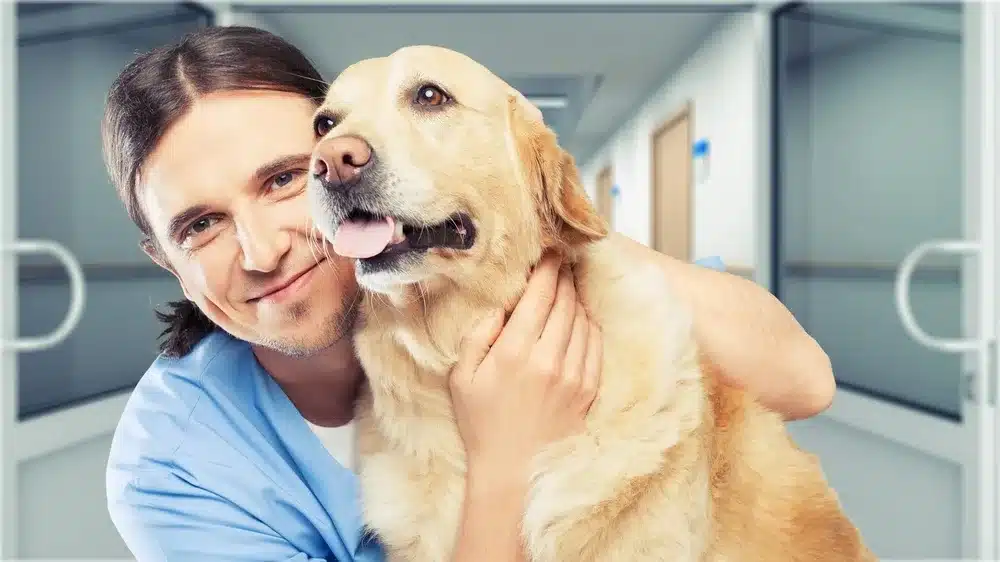This Animal Health Care course (Foundation Vet Nursing) is designed to give you practical understanding of common veterinary nursing procedures.
Who is this course suitable for?
This online course is suitable for anyone looking for a ‘foot in the door’ job with a veterinary clinic and who intends to go on and do further study, or even for those interested in basic animal care. By studying this course, you will gain valuable experience in understanding many aspects of Animal Health Care. Careerline Courses recommends that any student interested in pursuing an animal care career engage in ongoing volunteer work to gain the necessary practical experience.
This course dovetails with many of our other animal care courses such as diagnosing animal diseases, pet care, dog care and others.
Course Aims:
- To describe the scope of services offered by animal care services, including veterinary practices.
- Describe common health problems in various animals, including injuries & diseases, causes of ill health problems in family pets
- Explain the natural behaviour of different types of domestic animals in different situations – natural behaviour of animals, problems in wild animals, and behaviour in domestic animals
- Identify common signs of ill health in different animals – vital signs, the healthy animal, signs & symptoms of disease and diagnose and control of diseases
- Describe the purposes of different facilities used in veterinary practice, the contents of a first-aid kit, suitable enclosures for animals
- Determine safety procedures for a veterinary practice, workplace safety issues, aspects of health and safety for veterinary practices
- Describe different administration procedures in veterinary practice, including animal insurance, legal considerations, day to day management of a veterinary office
- Describe/select first aid procedures/treatments for different animals in response to common health problems in animals, identify types of wounds and suitable treatments
- Describe requirements for maintaining good health in domestic animals, including nutrition & preventative medicine, preventing ill health through correct management, vaccinations
- To develop an understanding of routine treatments for healthy animals such as de-sexing, managing a pregnancy and euthanasia
- To develop a broader awareness of health problems and their treatment in domestic pets, discuss ticks and tick borne diseases, Australian animals, birds, reptiles, and fish
- To develop skills in caring for animals prior to, during or after treatment, planning a recovery and animal nursing
Detailed Course Outline
This course is made up of a number of lessons or units. Each having self assessment questions, set tasks (practical homework), and an assignment which you can upload online.
There are 12 lessons in this course:
1. Introduction to Animal Health Care
-
- nature and scope of veterinary services
- private veterinary practices
- other veterinary services; laboratories, quarantine, agriculture departments, pharmaceutical companies, educational, etc
- other animal services; breeders, holiday care, etc.
- animal welfare and control
- veterinary services
- code of practice
- terminology
- transporting animals
2. Common Health Problems in farm animals and pets
-
- causes of ill health
- injury
- conditions
- nutritional problems
- living organisms
- parasites
- family pets common conditions
- dogs
- cats
- caged birds
- aquarium fish
- mice
- wild animals common conditions
- reptiles
3. Animal Behaviour
-
- communication in dogs
- scent
- barking
- body language
- handling cats
- bird language
- types of behavior
- time orientation
- space orientation
- territorial behavior
- aggression
- horse psychology
4. Signs of Ill Health
-
- vital signs
- the healthy animal
- signs and symptoms of diseases
- recognising ill health
- diagnosis of diseases
- taking smears
- taking tissue samples
- diagnosis and control of different types of diseases including
- viruses
- bacteria
- protozoa
- parasites
- mites
- fleas
5. Veterinary Facilities
-
- types of facilities; clinic, hospital, mobile facility, emergency facility,etc
- first aid kit; aids for diagnosis, instruments, medicines, preparations, etc
- record management
- enclosure for animals
- environmental requirements
6. Safety Procedures
-
- duty of care
- lifting heavy weights
- reducing back injury
- protective equipment
- dealing with chemicals
- skin penetrating injuries
- risk categories
- separating animals
- disposal of dead/infected tissues
- dangerous non-animal wastes
- storage and handling of medicines
- handling larger animals
7. Administration of Animal Health
-
- animal insurance
- quarantine
- importing animals
- managing a veterinary office
- telephone usage
- record keeping
- filing information
8. Animal First Aid
-
- types of wounds
- cuts
- punctures
- tears
- treating and cleaning wounds
- granulating wounds
- stitching a wound
- bone and joint problems
- broken bones
- tendon injury
- poisoning
- restraining animals during first aid
- restraining cats
- restraining dogs
- restraining horses
- restraining cattle
- restraining sheep
9. Preventative Health Care
-
- preventing ill health
- balanced diet
- insect control
- dip
- vaccination
- Comparing natural active immunity, artificial active immunity, natural passive immunity, and artificial active immunity
- tetnus antiserum
- types of vaccines
- alternatives to vaccination
- avoid stressing livestock
10. Routine Health Treatments
-
- desexing
- castration
- vasectomy
- spaying
- tubal ligation
- castration of cats
- dogs
- pregnancy
- gestation periods
- euthanasia
- anaesthesia and analgesia
- preparing an animal for surgery
- sterilizing equipment
- castrating a colt
11. Health Problems in Domestic Pets
-
- burns
- urinary tract infections;
- shock
- electrolytes
- ticks
- reptiles
- fish problems
12. Rehabilitation Care
-
- scope of rehabilitation
- planning a recovery
- animal nursing
- the hospital pen
- monitoring temperature, pulse, respiration
- enclosures

